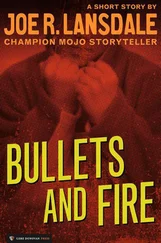Andrea Dworkin - Ice And Fire
Здесь есть возможность читать онлайн «Andrea Dworkin - Ice And Fire» весь текст электронной книги совершенно бесплатно (целиком полную версию без сокращений). В некоторых случаях можно слушать аудио, скачать через торрент в формате fb2 и присутствует краткое содержание. Жанр: Старинная литература, на английском языке. Описание произведения, (предисловие) а так же отзывы посетителей доступны на портале библиотеки ЛибКат.
- Название:Ice And Fire
- Автор:
- Жанр:
- Год:неизвестен
- ISBN:нет данных
- Рейтинг книги:5 / 5. Голосов: 1
-
Избранное:Добавить в избранное
- Отзывы:
-
Ваша оценка:
- 100
- 1
- 2
- 3
- 4
- 5
Ice And Fire: краткое содержание, описание и аннотация
Предлагаем к чтению аннотацию, описание, краткое содержание или предисловие (зависит от того, что написал сам автор книги «Ice And Fire»). Если вы не нашли необходимую информацию о книге — напишите в комментариях, мы постараемся отыскать её.
Ice And Fire — читать онлайн бесплатно полную книгу (весь текст) целиком
Ниже представлен текст книги, разбитый по страницам. Система сохранения места последней прочитанной страницы, позволяет с удобством читать онлайн бесплатно книгу «Ice And Fire», без необходимости каждый раз заново искать на чём Вы остановились. Поставьте закладку, и сможете в любой момент перейти на страницу, на которой закончили чтение.
Интервал:
Закладка:
and the moon lights up the rain; and I am wet. I turn away
and go home.
*
The windows were open, as always. The cold no longer
streamed in as it had the first few months when the windows
first had to stay open day and night: winter, fall, summer,
spring: wind, rain, ice, fire. Now the cold was a tired old resident, always there, bored and heavy, lazy and indifferently spinning webs tinged with ice, stagnant, ever so content to stay
put. Even when the wind was blowing through the apartment,
blowing like in some classic Hollywood storm, the cold just
sat there, not making a sound. It had permeated the plaster. It
had sunk into the splintered red floors. It was wedged into the
finest cracks in pipes, stone, and brick. It sat stupidly on the
linoleum. It rested impressively on my desk. It embraced my
books. It slept in my bed. It was like a great haze of light, a
spectacular aura, around the coffeepot. It lay like a corpse in
a bathtub. The cats hunched up in it, their coats wild and
thick and standing on end, their eyes a little prehistoric and
haunted. They tumbled together in it, touching it sometimes
gingerly with humbly uplifted paws to see if it was real.
Prowling or crouched and filled with disbelief, they sought to
stumble on a pocket of air slightly heated by breath or accidental friction. There was no refuge of more than a few seconds’ duration.
The fumes that polluted the apartment came through the
walls like death might, transparent, spreading out, persistent,
inescapable. A half mile down, five long flights, immigrants
cooked greasy hamburgers for junkies, native-born. Each
hamburger spit out particles of grease, smoke, oil, dirt, and
each particle sprang wings and flew up toward heaven, where
we tenement angels were. The carbon monoxide from incomplete combustion was a gaseous visitation that blurred vision, caused acute, incomprehensible pain inside the head,
and made the stomach cringe in waiting vomit. The gas could
pass through anything, and did: a clenched fist; layers of human
fat; the porous walls of this particular slum dwelling; the
human heart and brain and especially the abdomen, where it
turned spikelike and tore into the lower intestine with sharp
bitter thrusts. Molecules whirled in the wall: were the wall
100


itself whirling: wondrous: each molecule providing elaborate
occasion for generous invasion: dizzying space for wandering
stink and stench and poison. The wall simply ceased to be
solid and instead moved like atoms under a microscope. I
expected to be able to put my hand, gently, softly, kindly,
through it. It would fade and part like wisps of cotton candy,
not clinging even that much, or it would be like a film ghost: I
would be able to move through it, it not me being unreal. The
wall had become an illusion, a mere hallucination of the solid,
a phantom, a chimera, an oasis born of delirium for the poor
fool who thirsted for a home, shelter, a place inside not outside,
a place distinctly different from the cold streets of displacement
and dispossession, a place barricaded from weather and wind
and wet.
Each day— each and every day— I walked, six hours, eight
hours, so as not to be poisoned and die. Each day there was no
way to stay inside and also to breathe because the wind did
not move the fumes any more than it moved the cold: both
were permanent and penetrating, staining the lungs, bruising
the eyes. Each day, no matter how cold or wet or ugly or dusty
or hot or wretched, the windows were open and I walked:
anywhere: no money so there was little rest: few stops: no
bourgeois indulgences: just cement. And each night, I crawled
back home, like a slug, dragging the day’s fatigue behind me,
dreading the cold open exposed night ahead. In my room,
where I worked writing, the windows were never closed because the stench and poison were too thick, too choking. After midnight, I could close two windows in the living room just
so no one went in it and just so they were open again by 6
am when the cooks heated up the grease to begin again.
Sometimes, in my room, writing, my fingers were jammed
stiff from the cold. Sometimes the typewriter rebelled, too
cold to be pushed along. I found a small electric heater, and
if I placed it just right, out of the wind but not so close to
me that my clothes would burn, my fingers would regain
feeling and they would begin to bend subtly and hit the right
keys, clumsy, slow, but moving with deliberation. Less
numbed, they moved, a slow dance of heroic movement:
words on a page.
Each night, until dawn was finally accomplished, fully alive
101


and splendid, I wrote, and then I would crawl, broken-hearted
and afraid of dying, to one small distant room, the size of a
large closet, where the fumes were less, and I would sleep on
the floor on an old Salvation Army mattress with springs that
some reformed alcoholic had never quite finished under an
open window. I would dream: oh, Freud, tell me, what could it
mean: of cold, of stench, of walking, of perhaps dying. Morbid
violences and morbid defeats: cement, rain, wind, ice. Time
would pass: I would tremble: I would wake up screaming:
driven back to sleep to be warmer, I would dream of cold, of
stench, of walking, of perhaps dying. Then, it would be time
to wake up. I would be tired and trembling, so tired. I would
walk, six hours, eight hours. After the first two winters I never
got warm. Even in the hell of tenement heat, I never got warm.
I dreaded cold like other people are afraid of being tortured:
could they stand it, would they tell, would they beg, would
they die first right away, struck down by dread, would they
dirty their pants, would they beg and crawl. I wanted to surrender but no one would accept my confession and finish me off.
He kissed me against my will and then I walked home,
slowly, in the rain, wet.
My love, the boy I lived with, lay sleeping, curled up in a ball,
fetal, six feet, blond, muscled, and yet his knees were drawn
up to his chest and his sweet yellow curls fell like a two-year-
old’s over his pale, drawn face, and his skin was nearly translucent, the color of ice spread out over great expanses of earth.
He was dressed in layers of knitted wool, thermal pants and
shirts, sweatshirts: we always wore all we had inside. The quilt
with a wool blanket on top of it had shifted its place and his
knees and face were brought together, his hands lost somewhere between them. I sat watching him, lost, in this room of his. He was on brown sheets. The radiator clanged and
chugged: the noise it made was almost deafening, only in this
room. There were big windows, and a fire escape splayed out
under them going down to the treacherous street. There was a
Читать дальшеИнтервал:
Закладка:
Похожие книги на «Ice And Fire»
Представляем Вашему вниманию похожие книги на «Ice And Fire» списком для выбора. Мы отобрали схожую по названию и смыслу литературу в надежде предоставить читателям больше вариантов отыскать новые, интересные, ещё непрочитанные произведения.
Обсуждение, отзывы о книге «Ice And Fire» и просто собственные мнения читателей. Оставьте ваши комментарии, напишите, что Вы думаете о произведении, его смысле или главных героях. Укажите что конкретно понравилось, а что нет, и почему Вы так считаете.












